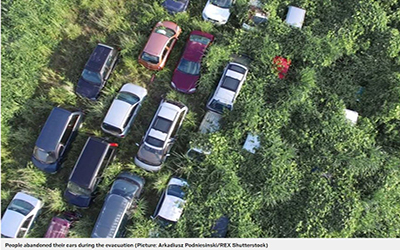Many of us understandably feel like the center of the world. In a way, we are the centers of our own worlds. This centricity extends to where we live — our houses — and the cities in which we reside. While some of us might live/work in more than one locale, which would broaden your perspective, this isn’t the norm. Indeed, many of us consider the problems we increasingly face in our cities such as homelessness and affordability “the worst where we live”. The fact remains, however, that affordability isn’t a localized or rare problem. Its a global crisis.
The challenge with calling it — and treating it — like a crisis is that it feels like an emergency we need to immediately and perhaps rashly act on. When we react to an emergency situation, things are rarely strategic or thoughtful, considering second or third order consequence. We want to solve , as swiftly as possible, likely missing a lot of the potential solutions that a thorough fact based review might yield. A question I ponder is, if something is incredibly prevalent and persistent in terms of duration, is it still considered a crisis? There are reasons for this “crisis”, though, and those reasons are the trends of globalization and urbanization.
The term Globalization was popularized with Thomas Friedman’s 2005 book “The World is Flat”. Its a common word used in business circles, and for the past decade has felt like an inescapable tide. The rise of populism, however, might be reversing this trend to a degree — but that’s a whole different subject matter of discussion.
Many internet and technology companies have been benefactors of this trend, with Alibaba and Amazon becoming household names and harnessing some of this power, at a retail consumer level, over the internet. With the internet, it does feel like the world is flat. It feels like a smaller space when we can reach out, online, and connect with someone in virtually any country around the world, at the drop of a Skype call. For free. Who could do that even 15 years ago? No one. As the world feels smaller, we can feel at home, and connect with “home” from almost anywhere, increasing the ease of migration and movement of peoples globally.
With globalization has also come the rise of urbanization and the creation of “mega cities”. Mega cities are cities or contiguous urban metropolises that bleed together and contain over 10 million people. Fellow Canadians live in one of the least crowded countries on earth, at about 4 people per square kilometer. The converse to Canada, of course, is more people living in a smaller area. Hence, another term we are all too familiar with in urban centers: density. Simply, more concentrated human development means more density.
Urbanization is correlated to globalization and can be generally defined as the rapid trend of a populace moving to increasingly dense living environments, away from more historical rural areas. While the reasons for urbanization are numerous, ranging from chasing wealth to harboring innovation, the reality is that this is a primary culprit behind the prevalence of affordability challenges we are encountering in most any urban metro on earth. An interesting counter-trend which isn’t well documented, observed or discussed are those rural locations that are being all but abandoned over time with urbanization. An extreme example of such is Fukashima; after the fallout of the nuclear accident, it has been completely reclaimed by nature. Could hyper urbanization result in hyper naturalization of these rural environments over a longer horizon, say 50 years? Could this be a positive externality of human environments growing increasingly dense over time? Could it even be a positive consequences of anthropogenic impact on earth? One can hope.
Concluding by revisiting the question of the “affordability crisis” being a crisis given its global occurrence — and why we continue to be surprised that density and urbanization create affordability challenges when its been well studied, discussed and acknowledged for decades is confounding. With such a well known trend, I would have thought we could conclude on more pragmatic and effective mechanisms to build for and house everyone. That must remain a priority, and while we aren’t there yet, there are many bright minds working on that problem. The center of (y)our world depends on it.




